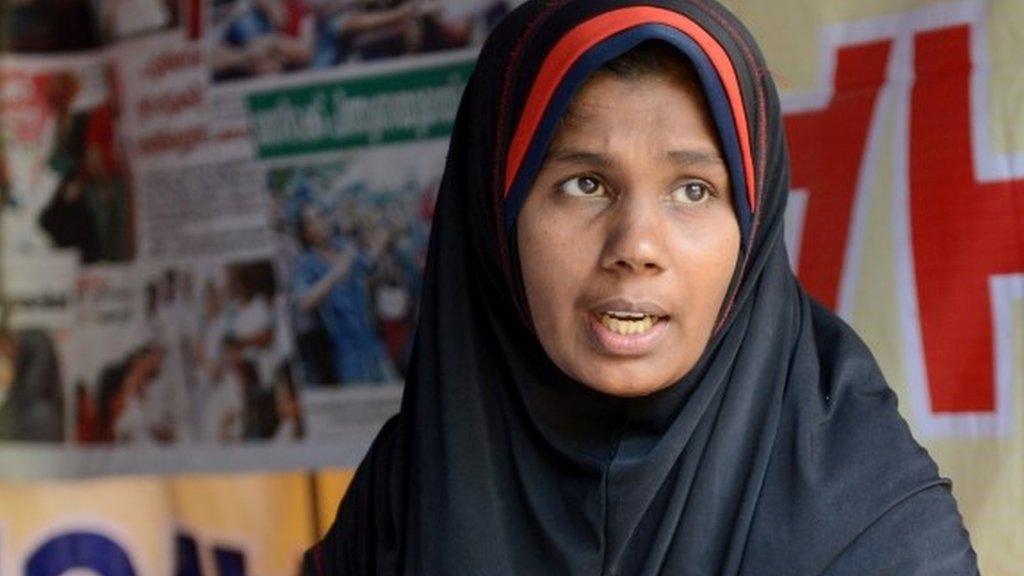Why politicians in an Indian state are sparring over sand
- Published
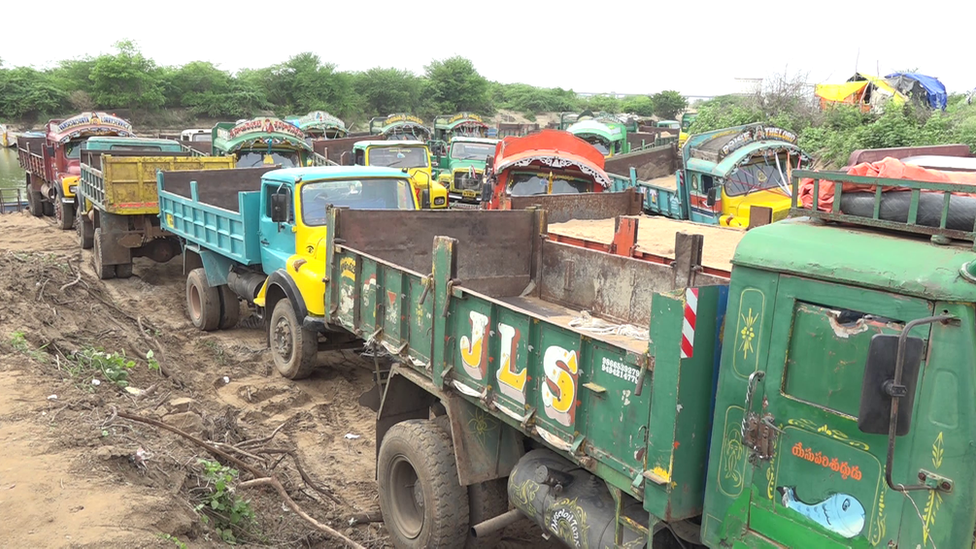
The decreasing supply of sand has left thousands unemployed
Politics in the southern state of Andhra Pradesh has recently been consumed by a rather mundane commodity - sand. For the past five months the state has been running short of sand and leaving hundreds of thousands jobless, reports BBC Telugu's V Shankar.
The situation has paralysed the construction industry as ruling and opposition parties spar over who is to blame, highlighting allegations of corruption and breaches of environmental rules in the lucrative sand mining industry.
Former chief minister Chandrababu Naidu has asked people to join him in a day-long sand "satyagraha", borrowing the term for nonviolent resistance coined by independence leader Mahatma Gandhi.
And the newly elected government, led by Jaganmohan Reddy and his YSR Congress party, has announced a "sand week", starting from 14 November, to increase the availability of sand in the state.
Why such a fuss over sand?
With numerous rivers, Andhra Pradesh is rich in sand, which is mined or dredged out of river beds to feed India's voracious construction industry - the real estate and construction sector is expected to grow to $650bn (£506bn) by 2025, according to the consultancy KPMG.
It is fuelled by the need for infrastructure (expanding cities, highways, bridges, airports) and housing for a growing urban population. Sand is indispensable for building any of this.
But its scarcity has slowed and even stalled construction across the state in the past five months. This is a problem for two reasons. One, it affects all of those who rely on the state's construction industry for employment - that's about five million people, according to official estimates.
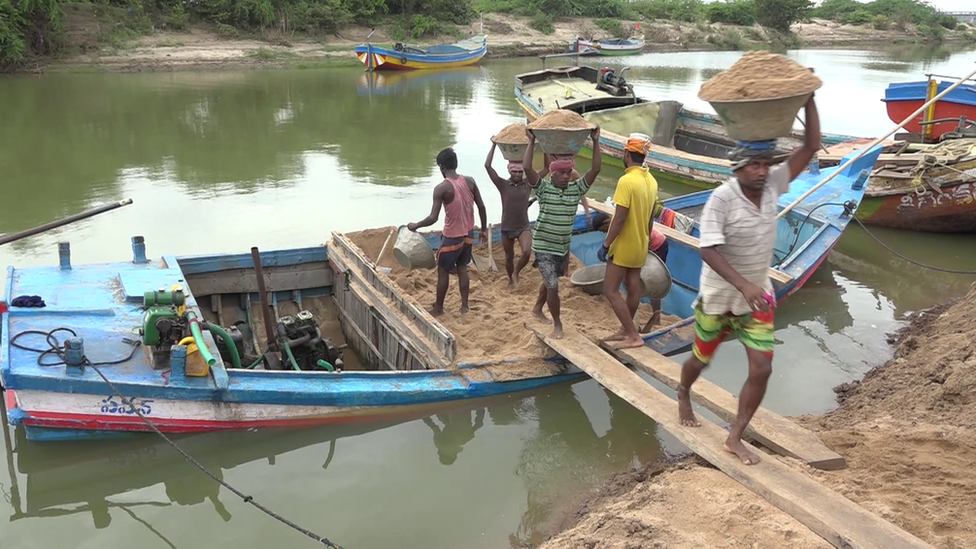
The state is known for being rich in sand
"There has been no sand for four months, and no work either. Do you know how hard it has been? We are unable to pay rent and we are close to living on the streets," Bhulakshmi, a daily wage labourer, says.
Kanchumarti Katamuraju, a mason, says apart from daily wage labourers, even carpenters and electrical workers are struggling to find jobs as are those in related industries such as brick manufacturing.
"I used to produce and sell more than 100,000 bricks a month, but now I am struggling to even sell 10,000," says B Venkat, who runs a brick-making factory in East Godavari district.
The second reason is that stalled construction is a strain on banks and the balance sheets of companies that often borrow or raise capital to execute such projects.
Builders say that the permits and paperwork now required to buy sand are delaying their work.
"It's taking up to a week to complete all the paperwork. It's unclear if the sand will finally arrive in a week or a month," says T Srinivas.
And the shortage seems to have driven up the price of sand. Although the government has set the price at 375 rupees ($5; £4) a tonne, industry insiders say the black-market price has gone up to $55 a tonne.
Even suicides by some construction workers have been linked to job losses in the industry.
Why is there a shortage of sand?
While Mr Reddy and his government have admitted that there is a shortage of sand, they say this is largely because heavy rains during the monsoon led to a rise in the water level in the state's rivers. This has made it hard to extract sand in recent months.
But opposition parties blame his government for exacerbating the problem by introducing new regulations for the extraction and sale of sand.
Under the earlier government, sand was available for free and buyers only had to pay for transporting it.
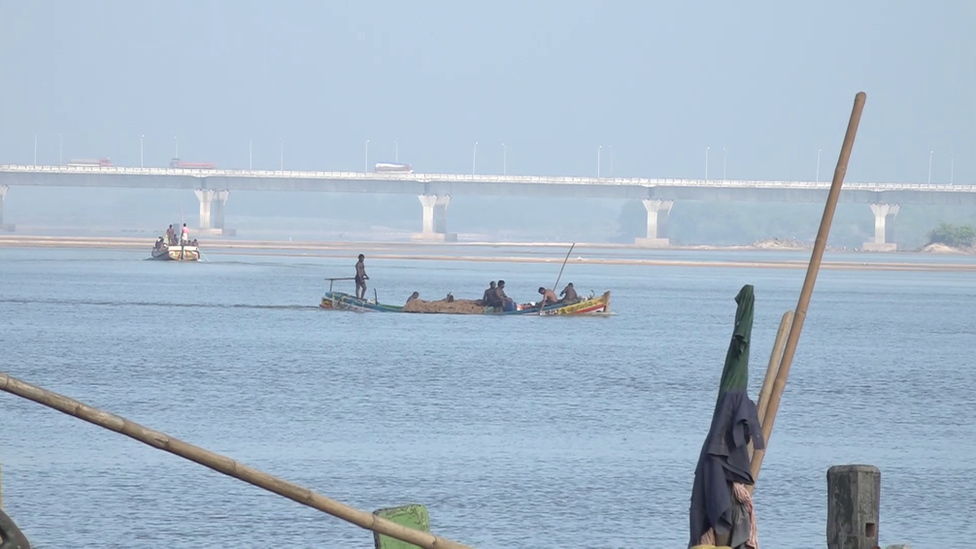
Heavy monsoon rain has made it harder to extract sand in recent months
But Mr Reddy centralised the extraction, which would be carried out by a government body that would then sell the sand at collection points across the state. Orders are now booked online and will be tracked along with transport to prevent hoarding or black-market sales.
But because of the shortage, the government appears unable to meet the demand. Its daily output doesn't exceed 40,000 tonnes, according to reports, while demand is often nearly four times that much.
Why did the policy change?
The so-called "free sand" policy of the previous government, led by Mr Naidu and his Telugu Desam party, came under a lot of criticism amid allegations of corruption and illegal sand mining.
An investigation by the state's pollution control board found that sand was being extracted by illegal methods or without the necessary permits, damaging river beds and coastal ecosystems.
Based on the findings of the report, the National Green Tribunal fined the state $13.9m in April 2019, external for failing to prevent illegal sand mining.
In its order the tribunal also cited news reports of how sand, a natural resource that the government was giving away for free, was in fact being sold on the black-market at higher prices.
The issue has often led to violence in Andhra Pradesh and elsewhere in India. In 2015, a district official accused a state lawmaker of attacking her when she tried to stop illegal sand mining, external.
Powerful sand mafias have been accused of threatening, assaulting and even killing officials and journalists, external who have tried to expose illegal sand mining.
- Published3 September 2017
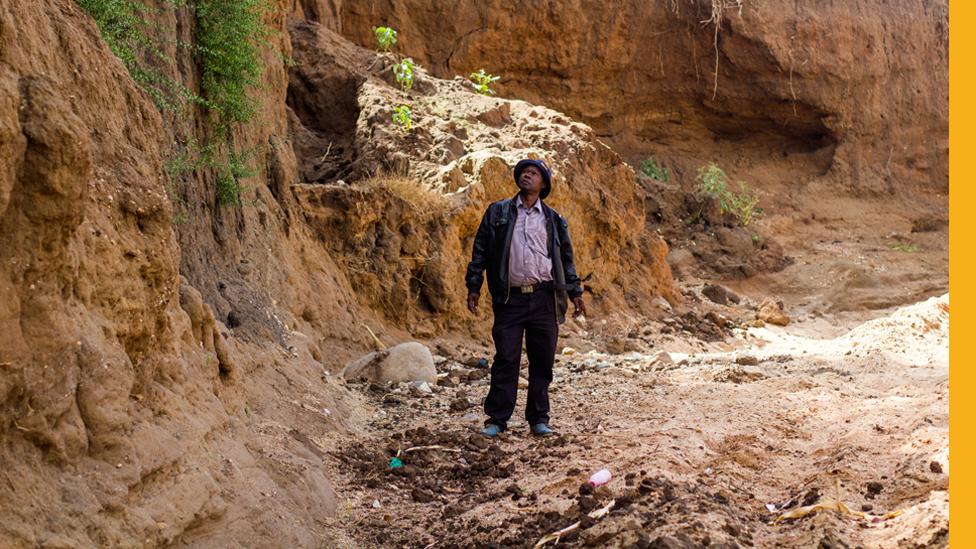
- Published10 December 2013
